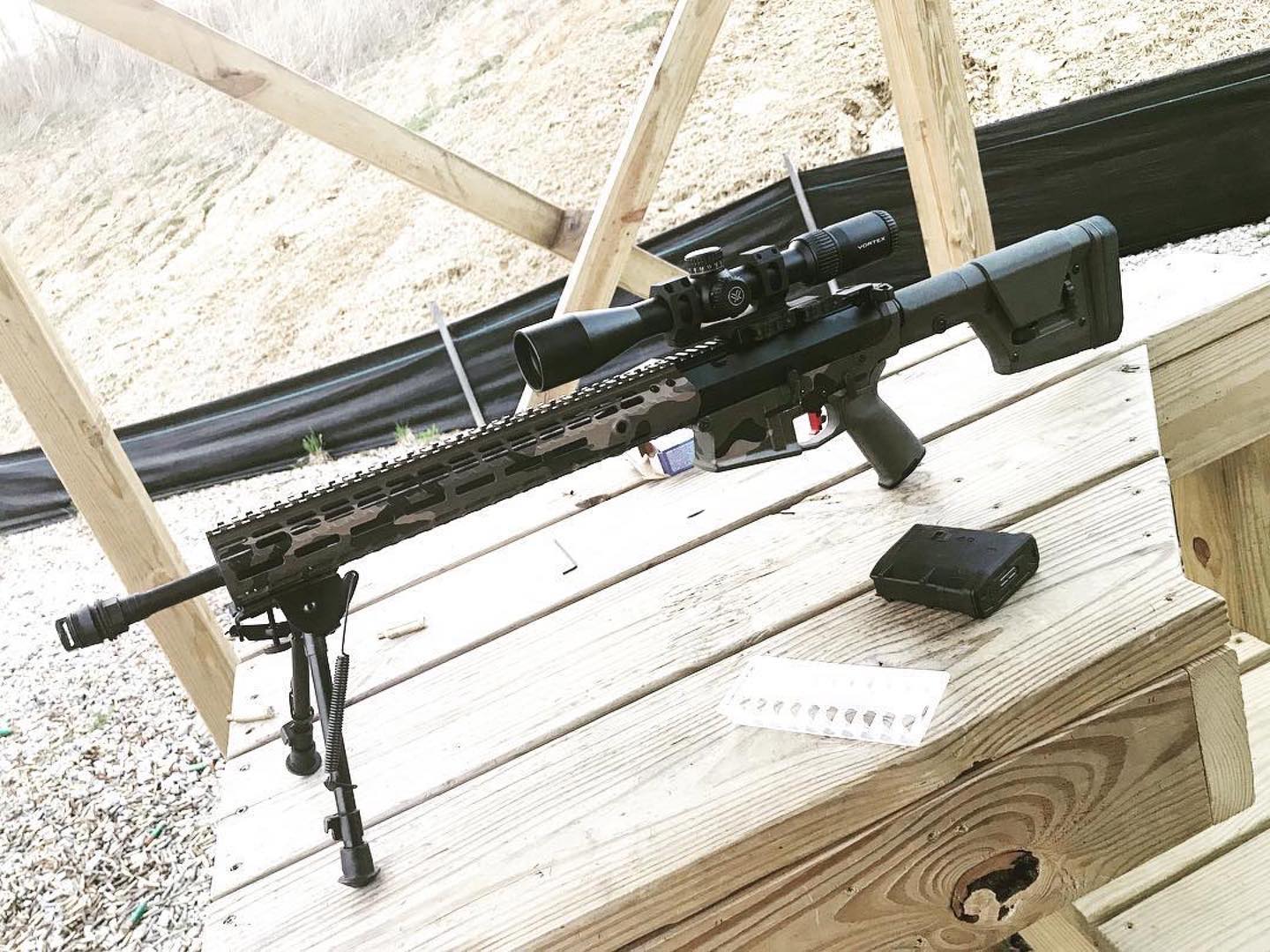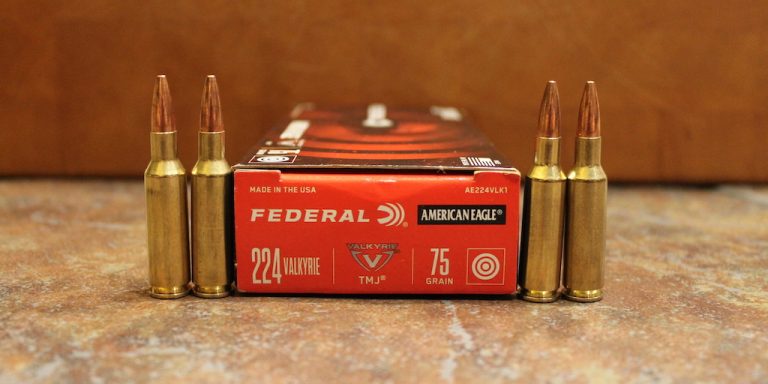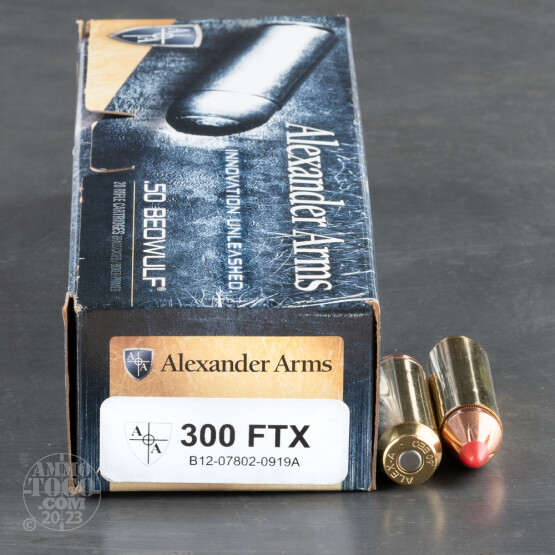24 Vs 20 Inch Barrel: Uncovering the Power of Barrel Length
The difference between a 24-inch and a 20-inch barrel is the length of the barrel. A longer barrel provides increased muzzle velocity and accuracy due to a longer sight radius and more time for propellant gases to accelerate the bullet.
In addition, a longer barrel generally reduces felt recoil. However, a shorter barrel increases maneuverability and is preferred in close-quarters situations. Both barrel lengths have their advantages and disadvantages, and the choice depends on the specific use and personal preference of the shooter.

Credit: www.snipercountry.com
The Basics Of Barrel Length
Barrel length plays a significant role in firearm performance. It affects accuracy and velocity. Shorter barrels generally sacrifice velocity, while longer barrels provide increased accuracy. The relationship between barrel length and performance is crucial for shooters to understand. The longer the barrel, the longer the distance for the bullet to accelerate, resulting in higher muzzle velocity.
This increased velocity enhances accuracy by reducing bullet drop and wind drift. Conversely, shorter barrels can be advantageous in close-quarters combat due to their compactness and maneuverability. Each shooter must consider their specific needs and intended use when choosing between a 24-inch or 20-inch barrel.
Ultimately, barrel length is a key factor that influences both accuracy and velocity, and its selection should be done thoughtfully to optimize firearm performance.
The Power Of A Longer Barrel
A longer barrel, such as a 24-inch one, offers several advantages for firearms enthusiasts. Firstly, it results in increased muzzle velocity, which can greatly impact bullet trajectory. This means that the bullet has a higher initial speed, leading to a flatter trajectory and better accuracy over long distances.
Secondly, the longer barrel provides enhanced long-range shooting capabilities. It allows for improved stabilization of the bullet, reducing the effects of wind and other environmental factors. With a longer barrel, shooters have more control and consistency, resulting in increased precision.
The power of a 24-inch barrel lies in its ability to generate higher muzzle velocity and provide greater long-range shooting capabilities, making it a valuable asset for firearms enthusiasts.
The Advantages Of A Shorter Barrel
A shorter barrel offers advantages in maneuverability and portability, especially in different shooting scenarios. When it comes to close-quarter combat, a shorter barrel length becomes even more beneficial. Increasing agility and ease of handling, a 20-inch barrel allows for swift movement and quick target acquisition.
In addition, it provides better balance and weight distribution, making it easier to navigate tight spaces or in dynamic environments. Furthermore, a shorter barrel can also reduce the overall weight of the firearm, enhancing its portability. These benefits make a 20-inch barrel a preferred choice for those who prioritize mobility and versatility in their shooting experiences.
Barrel Length Vs. Accuracy: Debunking The Myth
Barrel length and accuracy have long been a subject of debate among firearms enthusiasts. It is commonly believed that longer barrels inherently provide better accuracy, but this is not always the case. Contrary to popular belief, the influence of barrel harmonics on shot placement is just as crucial.
Factors such as bullet weight, barrel twist rate, and overall firearm design also play significant roles in determining accuracy. It is essential to strike a balance between barrel length and precision, considering the intended purpose of the firearm. While a longer barrel may offer some advantages, shorter barrels can be just as accurate in certain scenarios.
Ultimately, individual preferences and specific shooting needs should guide the decision-making process when it comes to selecting the optimal barrel length. By understanding the intricacies involved, one can dispel the misconception that longer barrels always equate to superior accuracy.
Selecting The Ideal Barrel Length
Finding the ideal barrel length involves considering factors such as the type of firearm, shooting style, and personal preferences. It requires a balance between performance, maneuverability, and practicality. The right barrel length depends on the intended purpose, whether it’s for long-range accuracy or close-quarters combat.
Compact 20-inch barrels offer increased maneuverability but may sacrifice some accuracy. Meanwhile, longer 24-inch barrels provide enhanced velocity and accuracy but may be less convenient in tight spaces. It’s important to weigh these factors and choose a barrel length that best suits your needs.
Remember, evaluating your firearm, shooting style, and personal preferences is crucial in making an informed decision. So take your time, consider the options, and select the barrel length that will optimize your shooting experience.
Factors Beyond Barrel Length
Bullet weight and design play a crucial role in firearm performance, in addition to barrel length. These factors must be taken into account when analyzing the overall impact. Proper maintenance is also vital for ensuring optimal barrel performance. Neglecting maintenance can lead to decreased accuracy and potential malfunctions.
Understanding the interplay between these components is essential for firearm enthusiasts seeking to maximize their shooting experience. By considering not only barrel length but also bullet weight, design, and maintenance, shooters can achieve improved accuracy and performance. So, it’s important to broaden our perspective and look beyond just barrel length to fully comprehend the various factors affecting firearm performance.
24 Vs 20 Inch Barrel: Uncovering The Power Of Barrel Length
When comparing the impact of barrel length on firearm performance, it is important to consider the benefits and drawbacks of both longer and shorter barrels. Longer barrels generally provide increased bullet velocity and accuracy due to the longer distance the bullet travels within the barrel, allowing for more efficient burning of propellants.
However, longer barrels can also be heavier and less maneuverable, making them less practical in certain situations. On the other hand, shorter barrels are more compact and lighter, resulting in better maneuverability and easier handling. However, shorter barrels may sacrifice some bullet velocity and accuracy compared to their longer counterparts.
Ultimately, the choice between a 24-inch or 20-inch barrel depends on the specific needs and preferences of the shooter. It is important to consider factors such as intended use, shooting distance, and personal comfort to determine the optimal barrel length for your firearm.
Frequently Asked Questions Of 24 Vs 20 Inch Barrel
What Is The Difference Between A 24 Inch And A 20 Inch Barrel?
The difference between a 24 inch and a 20 inch barrel lies in their length, which affects factors such as muzzle velocity, accuracy, and maneuverability. A longer barrel can provide higher bullet velocity and improved accuracy, while a shorter barrel offers better maneuverability and ease of carrying.
Does A 24 Inch Barrel Provide Better Accuracy Than A 20 Inch Barrel?
The length of the barrel alone does not guarantee better accuracy. While a longer barrel can stabilize the bullet for improved accuracy, other factors such as bullet design, rifling, and shooter skill also come into play. Optimal accuracy depends on finding the right balance between barrel length, bullet type, and other variables.
What Are The Advantages Of Using A 20 Inch Barrel?
A 20 inch barrel offers several advantages. It is generally more compact and lighter, making it easier to maneuver in tight spaces and carry for extended periods. This makes it a preferred choice in close-quarters situations and for individuals who prioritize mobility without sacrificing too much ballistic performance.
When Would A 24 Inch Barrel Be More Beneficial?
A 24 inch barrel can be more beneficial in situations requiring long-range precision shooting or hunting. The added length allows for increased muzzle velocity, which can result in flatter trajectories and potentially enhanced accuracy at extended distances. It is often favored by marksmen and hunters who prioritize long-range performance.
Can A 20 Inch Barrel Achieve The Same Muzzle Velocity As A 24 Inch Barrel?
While a 20 inch barrel may not achieve the same muzzle velocity as a 24 inch barrel, it can still provide sufficient velocity for effective usage. Modern ammunition and barrel design advancements have significantly narrowed the performance gap between different barrel lengths, meaning a 20 inch barrel can still deliver excellent results in various scenarios.
What Other Factors Should I Consider When Choosing Between A 24 Inch And A 20 Inch Barrel?
When deciding between a 24 inch and a 20 inch barrel, it’s essential to consider factors such as intended use, shooting discipline, personal preference, ammunition availability, and the trade-offs between range performance and maneuverability. It’s recommended to assess your specific needs, consult experts, and even consider testing different barrel lengths to determine the best fit for your purposes.
Conclusion
Choosing between a 24-inch barrel and a 20-inch barrel ultimately depends on your specific needs and preferences. The longer 24-inch barrel offers increased muzzle velocity and a longer sight radius, making it ideal for long-range precision shooting. It provides better accuracy and stability, making it a popular choice among competitive shooters and hunters.
On the other hand, the 20-inch barrel is more compact and maneuverable, making it suitable for close quarters and tactical situations. It offers a balance between portability and performance, making it a versatile option for a variety of shooting applications.
Ultimately, both barrel lengths have their advantages and limitations, and the decision should be based on your shooting style, purpose, and personal preference. Consider your specific requirements and conduct thorough research to make an informed choice that suits your needs best.







